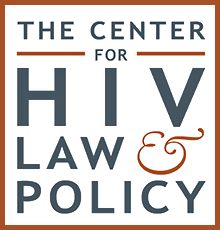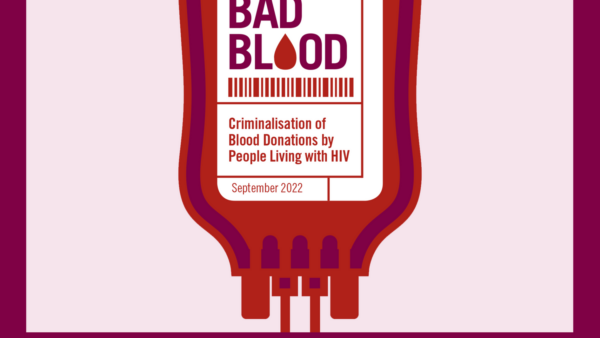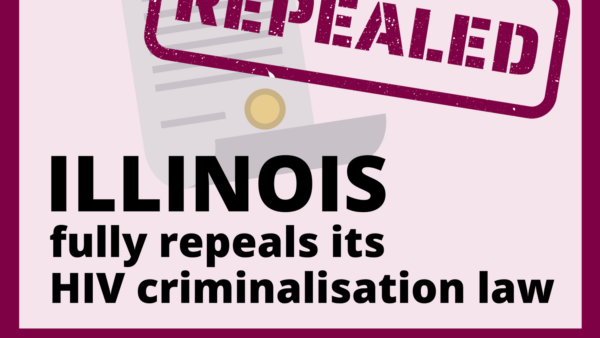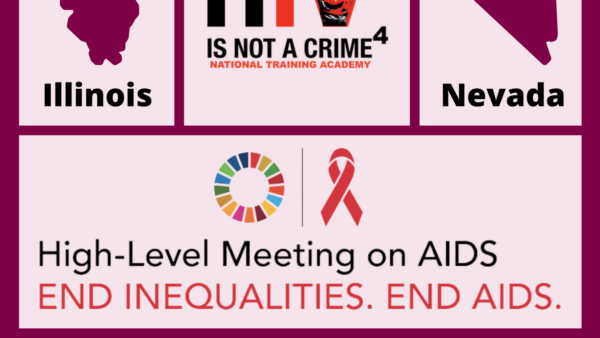Overview
Illinois passed a HIV-specific law which criminalised perceived ‘exposure’ to HIV in 1989. The scope of this law was narrowed following amendment in 2012, before being fully repealed in 2021, making Illinois the first state for more than two decades – since Texas in 1994 – to fully repeal its HIV-specific law.
Prior to reform in 2012, the Criminal Code criminalised perceived HIV ‘exposure’ broadly and made no account for transmission risk, including acts which carried little or no possibility of transmission, such as oral sex, biting, and spitting. The law also criminalised people living with HIV who shared non-sterile needles, or donated blood or other bodily substances. Steps to prevent transmission – such as wearing a condom during sex – did not prevent prosecution, but it was a defence to prove disclosure of HIV status and consent to a risk of transmission prior to the act.
The 2012 reform made a number of changes to the law. It limited criminalisation of sexual acts to condomless anal or vaginal sex without prior disclosure of HIV-positive status, while sharing non-sterile needles or donating blood or other bodily substances continued to be an offence. Acts such as biting and spitting were no longer criminalised, and it continued to be a defence to prove consent following disclosure. Importantly, the new law required ‘specific intent’ to commit the offence. The penalty for a conviction remained unchanged, carrying a possible prison sentence of three to seven years, plus a fine.
The 2012 reform was in response to a 2009 case in which a man was prosecuted for allegedly knowingly ‘exposing’ several women to HIV, but only convicted of one of 13 counts as, due to strong state HIV confidentiality laws, authorities could not access his medical records to determine whether he was aware of his status, a required element for conviction. As such, the primary motivation for the reform was to allow police to access medical records to aid prosecution. Despite criticisms of the existing law and the proposed reform, local organisations such as AIDS Foundation Chicago, acknowledging that the bill was certain to pass the Senate, worked with its sponsors to temper some of the worst aspects of the law.
The law was actively enforced during its lifetime. In Cook County, home to the largest city in the state, Chicago, and almost half of the state’s population, an analysis of court data shows that at least 60 people were charged under the HIV provision from 1990 to 2016, almost half of which were enhanced charges in sexual assault cases. The analysis showed that 75% of people charged were Black, significantly disproportionate to state demographics. At least 20 cases resulted in convictions, although no-one was prosecuted in Cook County after 2016. Even after the 2012 reform, the law was used at least 22 times state-wide.
While an improvement on the previous law, the 2012 reforms continued to be deeply problematic in some respects, most notably the fact that transmission was never a required element of the offence either pre- or post-reform. As such, local organisations including members of the Illinois HIV Action Alliance, continued to advocate for its repeal, which was achieved almost a decade later. Senate Bill 655 was introduced by Democratic State Senator Robert Peters in 2021, and passed the State House of Representatives in April and the Senate in May. The Governor signed the Bill into law in July, affirming a total repeal of the law.
Despite this hugely positive move, it should be noted that convictions under the law were not expunged. Furthermore, the transmission of STIs including HIV resulting from sexual assault can be the basis for an enhanced sentence under the offence of ‘aggravated criminal sexual assault’, however the Supreme Court has limited the application of this law to cases of actual transmission. Public health laws also continue to permit people living with STIs including HIV to be compelled to undergo examination or treatment, or to be subjected to quarantine to prevent transmission in some circumstances. Nevertheless, it is a significant advocacy success that there are no longer any HIV-specific criminal laws on the books in Illinois.
For a detailed analysis of HIV criminalisation in Illinois, as well as all other US states, see the Center for HIV Law and Policy report, HIV Criminalisation in the United States: a Sourcebook on State and Federal HIV Criminal Law and Practice.
Laws
Illinois Code 720 ILCS 5/12-5.01
Criminal transmission of HIV
(a) A person commits criminal transmission of HIV when he or she, with the specific intent to commit the offense:
(1) engages in sexual activity with another without the use of a condom knowing that he or she is infected with HIV;
(2) transfers, donates, or provides his or her blood, tissue, semen, organs, or other potentially infectious body fluids for transfusion, transplantation, insemination, or other administration to another knowing that he or she is infected with HIV; or
(3) dispenses, delivers, exchanges, sells, or in any other way transfers to another any nonsterile intravenous or intramuscular drug paraphernalia knowing that he or she is infected with HIV.
(b) For purposes of this Section:
“HIV” means the human immunodeficiency virus or any other identified causative agent of acquired immunodeficiency syndrome.
“Sexual activity” means the insertive vaginal or anal intercourse on the part of an infected male, receptive consensual vaginal intercourse on the part of an infected woman with a male partner, or receptive consensual anal intercourse on the part of an infected man or woman with a male partner.
“Intravenous or intramuscular drug paraphernalia” means any equipment, product, or material of any kind which is peculiar to and marketed for use in injecting a substance into the human body.
(c) Nothing in this Section shall be construed to require that an infection with HIV has occurred in order for a person to have committed criminal transmission of HIV.
(d) It shall be an affirmative defense that the person exposed knew that the infected person was infected with HIV, knew that the action could result in infection with HIV, and consented to the action with that knowledge.
(d-5) A court, upon a finding of reasonable suspicion that an individual has committed the crime of criminal transmission of HIV, shall order the production of records of a person accused of the offense of criminal transmission of HIV or the attendance of a person with relevant knowledge thereof so long as the return of the records or attendance of the person pursuant to the subpoena is submitted initially to the court for an in camera inspection. Only upon a finding by the court that the records or proffered testimony are relevant to the pending offense, the information produced pursuant to the court’s order shall be disclosed to the prosecuting entity and admissible if otherwise permitted by law.
(e) A person who commits criminal transmission of HIV commits a Class 2 felony.
Illinois Code 720 ILCS 5/11-1.30
Aggravated criminal sexual assault
(a) A person commits aggravated criminal sexual assault if that person commits criminal sexual assault and any of the following aggravating circumstances exist during the commission of the offense
(…)
(2) the person causes bodily harm to the victim (…)
Further resources
Not all laws used to prosecute people living with HIV in this state are included on this page. For a comprehensive overview and analysis of HIV-related criminal and similar laws and policies, visit The Center for HIV Law and Policy









